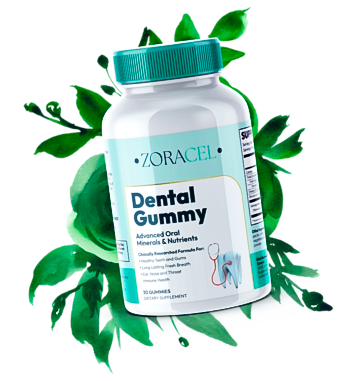Halitosis, or bad breath, is a problem that affects millions of people worldwide, impacting not only oral health but also self-esteem and social relationships.
Although often associated with simple lack of hygiene, its causes can be varied and complex, ranging from dietary issues to more serious health problems. In this article, we will explore in detail what halitosis is, its causes, symptoms, impacts on personal and social life, and effective prevention and treatment strategies.
📜Contents
- 1 What is Halitosis? 🤔
- 2 Common Causes of Halitosis 📌
- 3 Symptoms and Diagnosis of Halitosis 🤒
- 4 Impact of Halitosis on Social and Personal Life ❤️🩹
- 5 Treatments for Halitosis 👨⚕️
- 6 Natural Supplementation for Oral Health 🍃
- 7 Prevention of Halitosis 🛡️
- 8 Chronic Halitosis – Causes and Treatment ⚗️
- 9 Halitosis in Children and Adolescents 👶
- 10 Myths and Truths About Bad Breath ⚠️
- 11 Advances in Halitosis Research 🧬
- 12 Conclusion 💥
- 13 Also Read – More Posts 💡
What is Halitosis? 🤔
Definition of Halitosis
Halitosis, commonly known as bad breath, is a condition characterized by the presence of unpleasant odors in the mouth. This problem can manifest itself occasionally or persistently, depending on the underlying causes.
Halitosis is not just a sign of poor oral hygiene; it can also indicate more serious health problems, such as periodontal diseases or gastrointestinal disorders. It is important to recognize and treat halitosis as it can impact both oral health and a person’s overall well-being.

Common Causes of Halitosis 📌
Main Causes
The development of bad breath can be attributed to various factors. Poor oral hygiene is one of the main causes, allowing food debris and plaque to accumulate, releasing unpleasant odors.
Periodontal diseases, such as gingivitis and periodontitis, are also closely linked to halitosis, as harmful bacteria thrive in environments with inflammation and infection.
Additionally, conditions such as dry mouth, chronic sinusitis, gastric reflux, and certain respiratory infections can contribute to the onset of bad breath. Understanding these causes is essential for accurate diagnosis and effective treatment.

Symptoms and Diagnosis of Halitosis 🤒
Signs and Symptoms
The symptoms of halitosis are usually perceived as an unpleasant odor emanating from the mouth. This odor can vary depending on the underlying cause, and in many cases, the affected person may not be aware of the problem, being alerted by others.
In addition to bad breath, there may be a dry mouth, a metallic or bitter taste, and the presence of a tongue covered with a white or yellowish coating. These signs can help identify the presence of halitosis before it significantly affects the individual’s social and personal life.
Diagnosis
The diagnosis of halitosis is performed by oral health professionals using a combination of clinical examinations and specific tests. One common method is measuring the level of volatile sulfur compounds (VSC) in the mouth, which are the main culprits of the bad odor.
The dentist may also conduct a thorough examination of the oral cavity to identify possible causes, such as cavities, gingivitis, or infections.
In some cases, additional tests, such as endoscopy or saliva analysis, may be necessary to determine the exact origin of the problem.

Impact of Halitosis on Social and Personal Life ❤️🩹
Social Consequences
- Bad breath can have a profound impact on interpersonal relationships, leading to embarrassing situations and social isolation. Many people with chronic halitosis report difficulties in getting close to others, fearing negative reactions. This can affect social, professional, and even intimate relationships, creating a cycle of anxiety and low self-esteem.
Psychological Effects
- Halitosis not only affects social interactions; it can also have a significant psychological impact. Individuals suffering from chronic bad breath may develop social anxiety, fear of public speaking, and generalized insecurity. This condition can lead to emotional disorders such as depression, further worsening the affected person’s quality of life. The treatment of halitosis, therefore, goes beyond the physical aspect, encompassing psychological and emotional support as well.

Treatments for Halitosis 👨⚕️
Treatment Options
The treatment of halitosis should be directed at the underlying cause. Strict oral hygiene practices, including brushing teeth and tongue, flossing, and using mouthwash, are essential.
In cases where halitosis is caused by periodontal diseases, treatments such as professional cleaning, antibacterial therapies, and even natural supplements like Zoracel may be recommended. For those with systemic conditions, such as reflux or sinusitis, it is essential to treat the underlying disease to reduce bad breath.
Natural and Home Remedies
In addition to medical treatments, various natural approaches can be effective in combating bad breath.
Chewing mint leaves, cloves, or fennel seeds can help neutralize odors, or for more convenience, you can supplement with Zoracel, which is 100% natural and specifically designed for oral health.
Drinking plenty of water, avoiding foods that cause bad breath, such as onions and garlic, and maintaining a balanced diet are also practices that can improve oral health. However, it is important to remember that these solutions are complementary and do not replace professional care.
Natural Supplementation for Oral Health 🍃
Zoracel Gummy is 100% natural, a blend of probiotics, vitamins, minerals, and nutrients, FDA registered, GMP certified, and GMO free.
A brand-new formula designed specifically for healthy teeth and gums with good nutrients and free from bad breath.
Prevention of Halitosis 🛡️
Oral Hygiene Practices
- Preventing halitosis begins with adopting an effective oral hygiene routine. Brushing teeth after each meal, flossing daily, and cleaning the tongue are essential practices. Regular visits to the dentist for professional cleaning and preventive exams are also crucial to avoid the buildup of plaque and the formation of cavities, which can contribute to bad breath.
Dietary and Lifestyle Factors
- Diet and lifestyle habits play a significant role in preventing bad breath. Avoiding excessive consumption of foods that contribute to halitosis, such as alcohol, coffee, and sugar-rich foods, can help keep breath fresh. In addition, staying hydrated, avoiding smoking, and managing stress are measures that can significantly reduce the risk of developing halitosis.

Chronic Halitosis – Causes and Treatment ⚗️
Persistent Halitosis
- Chronic halitosis is a persistent form of bad breath that does not go away with regular oral hygiene practices. It can be caused by systemic problems, such as diabetes, liver, or kidney diseases, and requires a more complex treatment approach. Identifying the exact cause is crucial for effective treatment.
Treatment of Chronic Halitosis
- The treatment of chronic halitosis involves a combination of medical care and lifestyle changes. Depending on the underlying cause, the use of medications, periodontal disease treatments, or surgical interventions may be necessary. In many cases, regular follow-up with a healthcare professional is essential to monitor and adjust treatment as needed.

Halitosis in Children and Adolescents 👶
Causes in Young People
- Halitosis can also affect children and adolescents, often due to inadequate oral hygiene habits, untreated cavities, or respiratory problems such as tonsillitis and sinusitis. The consumption of certain foods and beverages, such as sodas and sweets, can worsen the problem, contributing to the development of bad breath.
Prevention and Treatment Tips
- To prevent halitosis in young people, it is important to educate them about the importance of oral hygiene from an early age. Encouraging regular brushing and flossing, as well as limiting the consumption of foods that cause bad breath, are essential measures. If the problem persists, it is crucial to consult a dentist to identify the cause and apply the appropriate treatment.

Myths and Truths About Bad Breath ⚠️
Demystifying Halitosis
Many myths surround bad breath, leading to misconceptions about its causes and treatments. For example, it is believed that bad breath always comes from the stomach, when in fact, most cases originate in the mouth.
Another common myth is that bad breath is always noticeable; however, some people may have halitosis and not be aware of it due to olfactory adaptation. Clarifying these myths is crucial for effective, evidence-based treatment.

Advances in Halitosis Research 🧬
New Discoveries
Research on halitosis continues to evolve, bringing new perspectives on its causes and treatments. Advances in understanding the oral microbiome, for example, have revealed the role of specific bacteria in the production of compounds that cause bad breath. Additionally, new technologies, such as digital breath sensors, are being developed to improve the diagnosis and monitoring of halitosis.
Future Trends in Managing Bad Breath
Future approaches to halitosis treatment may include the use of probiotics to balance oral flora, new formulations of mouthwashes, and personalized treatments based on the patient’s microbiological profile. These innovations promise to make halitosis management more effective and accessible.

Conclusion 💥
Halitosis is a condition that goes beyond social discomfort, potentially indicating oral and general health problems. Understanding its causes, symptoms, and treatments is essential to prevent and effectively combat bad breath.
By adopting proper hygiene practices, maintaining a balanced diet, and seeking professional guidance when necessary, it is possible to significantly improve quality of life and interpersonal relationships. Prevention remains the best approach, reinforcing the importance of daily oral care. Thank you for following this article to the end.
Also Read – More Posts 💡






[…] Halitosis: How to Treat and Eliminate Bad Breath for Good […]
[…] Halitosis: How to Treat and Eliminate Bad Breath for Good […]
[…] Halitosis: How to Treat and Eliminate Bad Breath for Good […]
[…] Halitosis: How to Treat and Eliminate Bad Breath for Good […]
[…] Halitosis: How to Treat and Eliminate Bad Breath for Good […]
[…] Halitosis: How to Treat and Eliminate Bad Breath for Good ✅ […]